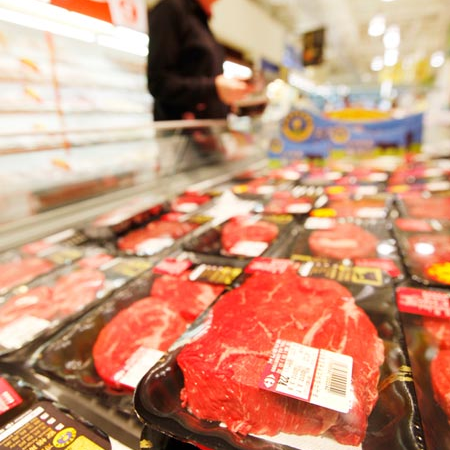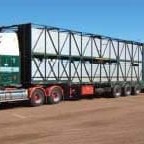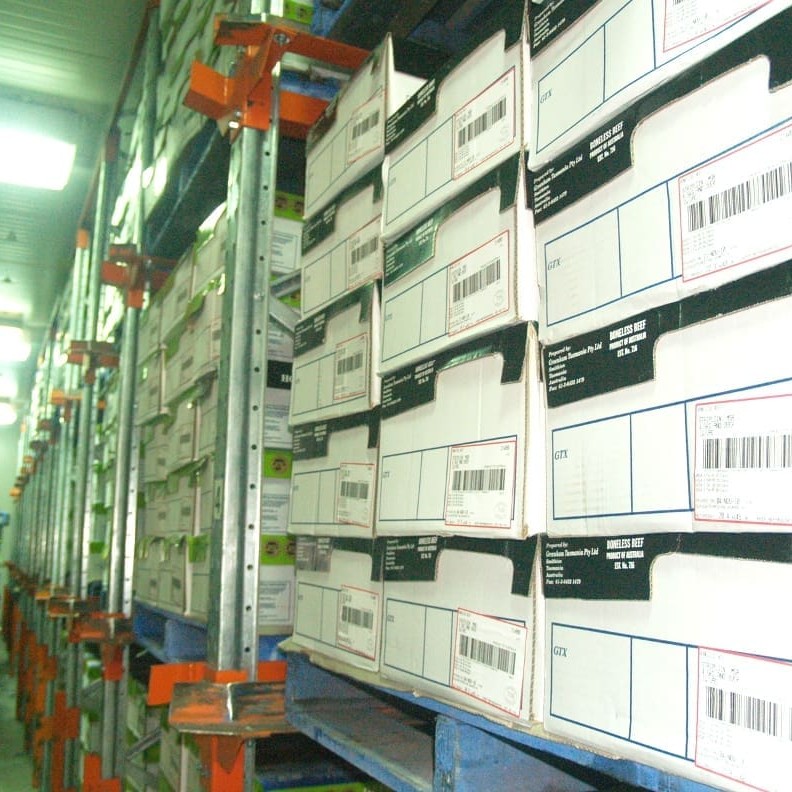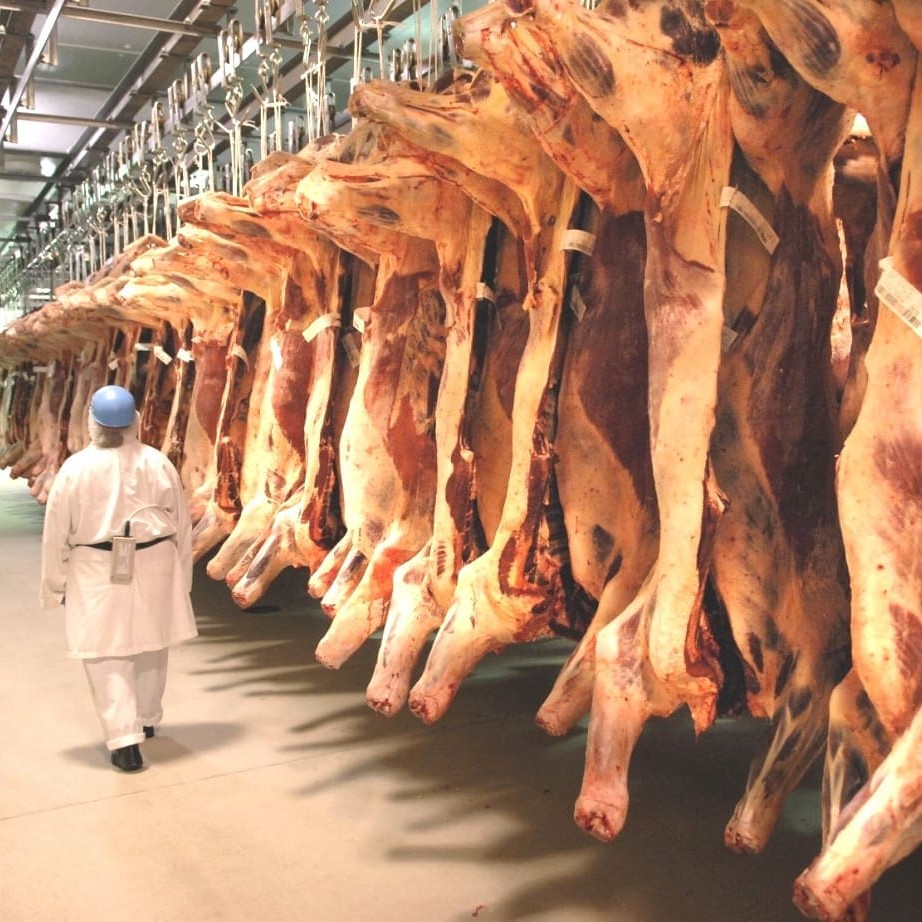With July’s monthly creditor accounts now lodged in many businesses, the true impact of the Federal Government’s insidious carbon tax is being calculated for the first time across the red meat supply chain.
Beef Central today takes a through-chain look at the impact of the carbon tax on different industry segments…
Retail butchery:
 Brisbane butcher Luke Stefanetti told yesterday’s Courier Mail the impact of the carbon tax had made it more difficult for him to compete with the major supermarket chains.
Brisbane butcher Luke Stefanetti told yesterday’s Courier Mail the impact of the carbon tax had made it more difficult for him to compete with the major supermarket chains.
After buying his McDowall Quality Meats business in Brisbane 11 months ago, Mr Stefanetti has rapidly increased his margins and customer base.
However the tax is eating into his hard work. He said the price of wholesale meat had increased, and blamed the new tax as the main cause. The tax was impacting on refrigeration and transport costs, and being at the ‘bottom of the chain’ meant he was being slugged with the increases by his suppliers.
He fears his electricity costs, used for cooling, lighting and running equipment, could also rise significantly from their current level around $3000 a month. As a result he had been forced to raise his retail prices 15-20pc to keep his business afloat. This could make it more difficult to compete on price against nearby supermarkets.
Livestock transport:
 One of Australia’s largest livestock transport operators, Fraser’s Transport based in Warwick (Qld), says the sector is not yet heavily exposed to the carbon tax, but all that will change when heavy diesel fuel users are included in two years’ time.
One of Australia’s largest livestock transport operators, Fraser’s Transport based in Warwick (Qld), says the sector is not yet heavily exposed to the carbon tax, but all that will change when heavy diesel fuel users are included in two years’ time.
At the current rate of $23/t, the carbon tax will cost Fraser’s more than $500,000 a year when diesel users are included from July 1, 2014. That’s across the company’s fleet of 52 Kenworth prime movers and 150 trailers of various configurations.
That figure has been calculated to represent a 3.5pc impact on freight rates, which will obviously have to be passed directly on to customers.
More immediately, Fraser’s is being charged more for electricity and gas, used in three large workshops and elsewhere in the business, but it is still a little early to effectively gauge the impact of that on costs, company principal Ross Fraser said.
Fraser’s lifted its charges to livestock haulage clients on July 1, but stressed in a letter that this was not attributed to the carbon tax.
Over recent years, Fraser’s has had to upgrade its fleet in order to meet the Federal Government’s carbon emission standards for diesel engines.
“That’s had an enormous effect on our industry,” Mr Fraser said.
“Most significant livestock transport operators are now running the ‘new technology’ engines, which use more fuel, but supposedly produce lower emissions. On top of that, they require bigger cooling systems, making the trucks themselves heavier, so there are operational compromises involved,” he said.
The ‘new generation’ low emission motors are typically using 0.1 to 0.5km per litre more fuel than older designs, adding significantly to fuel costs over a road miles/year cycle.
“It’s a bit like the carbon tax: there is no great incentive to go into the newer engines, with them using more fuel,” Mr Fraser said. “It’s just an additional cost. The general freight industry is typically getting about 2km/litre from their vehicles, but because of conditions, livestock transport typically gets just 1.0 to 1.5km/l.”
“The cruellest thing about the carbon tax is that nobody seems to be able to explain how it’s going to fix the problem – if in fact we have a problem,” he said.
Cold storage and distribution:
 Writing in Telstra’s Smarter Business Ideas journal yesterday, business commentator Ross Greenwood identifies refrigeration coolants – classed as synthetic greenhouse gases – was one of the many ‘hidden costs’ within the Government’s carbon tax.
Writing in Telstra’s Smarter Business Ideas journal yesterday, business commentator Ross Greenwood identifies refrigeration coolants – classed as synthetic greenhouse gases – was one of the many ‘hidden costs’ within the Government’s carbon tax.
“It affects any business that cools anything – from a pub to a bottle shop, butcher’s shop or supermarket,” he said. “The costs are going to rise, and the tax on those refrigerant gases is so much more than the $23/t for direct carbon dioxide.”
The synthetic GHGs used for refrigeration were seen to be much more harmful for global warming than carbon dioxide, and the Government had taxed them accordingly, Mr Greenwood said.
The tax scale is based on the global warming potential of each gas, relative to carbon dioxide. In one example, for a gas called R404A, the price has almost tripled from $70/kg to close to $200/kg.
Ross Greenwood used Canberra business Frozpack Food Services as a case study highlighting the impact of the tax. Frozpak handles, stores and distributes a range of chilled and frozen food items, including beef. Owner George Tremopoulos said on top of refrigerant gas price increases, it was exposed to higher electricity and fuel costs, as the diesel rebate decreases. The company uses about 15,000 litres of diesel a month in a fleet of 20 trucks.
In combination the business has three freezers, two chillers and five fridges, taking 400kg of the R404A gas at a single fill. All of the refrigeration units on the vehicles use the gas as well. Leaks in the refrigeration systems and pipes on the delivery vehicles rattling, cracking and breaking over time, means the Frozpak business is constantly replacing refrigerant gas.
Processing: ACC slugged $500K
 While not directly exposed to the carbon tax as a ‘Top 300’ emitter, Brisbane’s Australian Country Choice beef processing plant at Cannon Hill is facing a $500,000 additional annual cost burden in the form of higher electricity charges, alone.
While not directly exposed to the carbon tax as a ‘Top 300’ emitter, Brisbane’s Australian Country Choice beef processing plant at Cannon Hill is facing a $500,000 additional annual cost burden in the form of higher electricity charges, alone.
During a visit to ACC a fortnight ago, Federal Opposition leader Tony Abbott reaffirmed his commitment to remove the carbon tax, should the Coalition return to government at the next election.
“Our power costs have gone up about $10,000 per week since July 1,” ACC’s David Foote told Mr Abbott during the visit.
That equates to about $2 per beast slaughtered, purely in higher electricity costs.”
And that comes as part of what ACC considers to be its ‘very competitive’ price for power, compared with some other regional abattoirs.
“Because of our location and access to options, we think we are on the better end of the price scale, in terms of what other processors may be paying for electricity. We put out a tender each year to the major providers.”
While Mr Foote acknowledged the large rise in refrigerant gas costs due to carbon emissions, he said in the context of the overall increase driven hard by power costs, this was much less significant.
“All the one-percenters like refrigerant gas are obviously going to add up to something, but the big ticket item is power,” he said.
While a 200pc rise in refrigerant gas price was considerable, in the context of overall processing costs and electricity charges in particular, it was not such a large consideration. Packaging had also increased a ‘couple of percent’, on a big number, but energy cost was the big consideration.
“But the cost of maintaining the cold chain has definitely risen significantly across the Coles/ACC businesses. We all use cold stores and distribution agents, and they all use power and refrigerant gases.”
In a quirky twist, the waste water treatment process installed at ACC years ago uses an aerobic pond process, rather than anaerobic ponds. While this is more expensive in terms of electricity used to treat water, it also reduces the emissions in the form of methane.
“It’s the difference between being above the 25,000t threshold, at which we would be directly exposed to the tax, and about 11,000t of carbon emissions a year,” Mr Foote said.
Processing: ‘14pc rise’ a distortion
Another medium-sized southern Australian processor who asked not to be identified for the purposes of this article told Beef Central that his plant’s bottom line will be impacted to the tune of an additional $500,000 a year in energy costs, both electricity and gas.
While the energy supplier was describing the additional charge as a “14pc rise”, this was a distortion of the facts, Beef Central’s processor contact said.
“It’s not a 14pc rise, because more than half the cost of getting electricity is based on infrastructure. In fact, the fee increase is a 30pc rise. Simplistically, it is a 14pc rise on the whole power bill, but the actual supply of the electricity and the gas comprises less than half of the overall amount. The rest goes to line fees and other fixed infrastructure costs.”
“I’ve just seen one of our bigger processor competitor’s numbers in the last couple of days, and they are tearing up millions of dollars a month,” our contact said.
Add that to previous big increases in price for both, as well as an additional $400,000 a year in additional AQIS inspection fees and charges, and this business is under considerable cost pressure.
The plant in question is one of a bunch of Australian processors that kill between 100,000 and 150,000 cattle a year.
‘Double-dip’ on carbon cost burden
One of the perverse outcomes from the carbon tax on larger beef processors is that they face being charged twice, or perhaps more accurately, compounded for the same carbon output.
Large beef processors who pay the $23/t direct carbon tax for emissions above 25,000t are now faced with the incongruity of having to pay the tax again, through hefty rises in their monthly electricity and gas bills, reflecting the carbon impact on the gas or electricity energy provider.
“It’s a tax on a tax, and is totally unfair and unreasonable,” a processor contact said.
The other point which is riling some processor stakeholders is the fact that while there is a pass-through pricing mechanism for the energy providers to their customers, the energy providers themselves are under no obligation to become more efficient.
Effectively, what they are being charged in carbon tax, the energy providers are simply amortising into their costs and passing directly on to their customers.
Where is the regulatory/price signal pressure on the energy providers themselves, to ensure they move to more efficient energy generation? We’ll leave that one for Beef Central readers to ponder.
